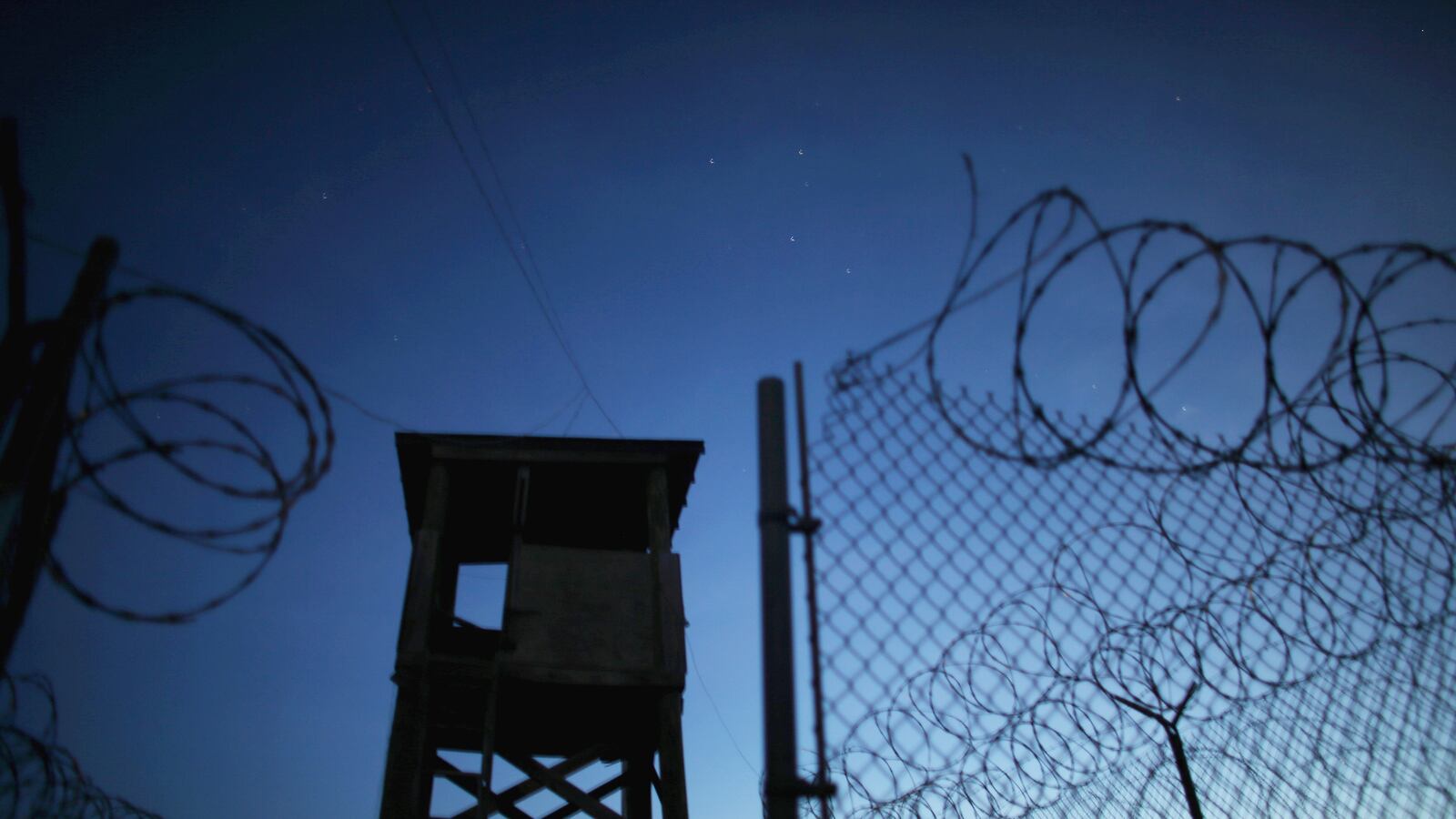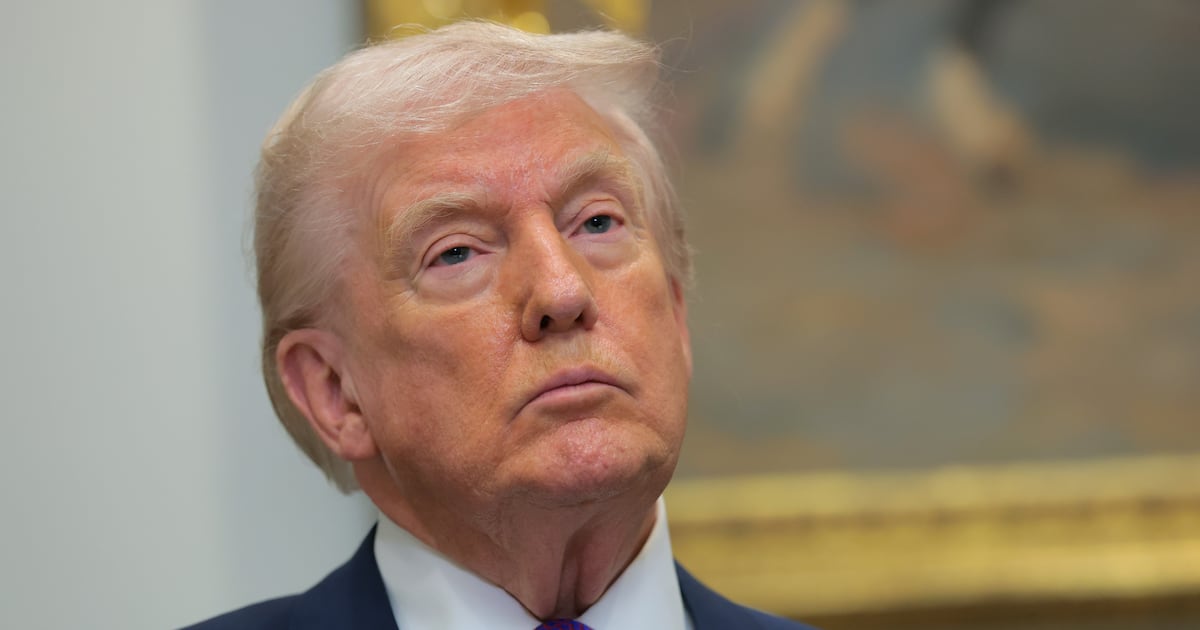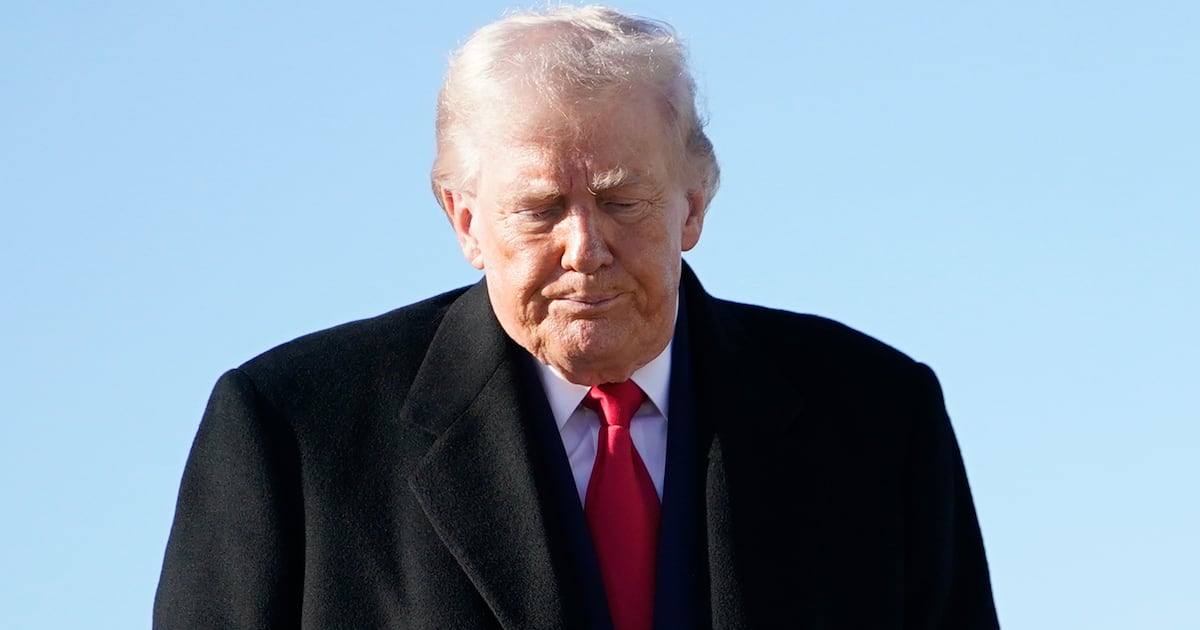President Obama and Guantánamo Bay prisoners have something in common: they both say they are being held captive by Congress. But a renewed congressional effort to close the Cuban detention center is seeking to change that.

A Senate committee hearing scheduled for Wednesday will be the first of significance to address closing Guantánamo Bay since 2009, when Obama made his first and failed concerted push to shutter the prison. The hearing marks an amped-up effort by members of Congress to address Guantánamo and to acknowledge current pitfalls within the system.
“Congress and the administration have been complicit in the current situation, which harms our national security and leaves more than 150 detainees in limbo. We need to address the future of the prison swiftly and decisively,” Sen. Dick Durbin (D–Illinois), chairman of the subcommittee on the Constitution, civil rights, and human rights, which is holding the hearing, told The Daily Beast in a statement. “This hearing will be the first step toward putting this dark period behind us once and for all.”
The hearing is called “Closing Guantánamo: The National Security, Fiscal, and Human Rights Implications,” and if the name is any indication, it will have a lot of ground to cover. In his speech at the National Defense University in May, Obama reasserted his commitment to closing the detention camps in Cuba, but a clear proposal for carrying that out has yet to emerge, and a plan for action after Guantánamo is closed is even more elusive.
“The problem that we face is of course almost the same. There are human-rights issues involved and counterterrorism rights involved, and then there’s the question of where, if you close Guantánamo, the people who are now there go,” Anthony Cordesman, chairman of strategy for the Center for Strategic and International Studies, said of the issues still on the table.
Of course suggestions have been passed around. Most Democrats propose bringing the remaining 166 Guantánamo detainees to the U.S, housing them in high-security facilities, and trying those who are fit for trial in military tribunals.
“Congress needs to accept that at least some Guantánamo detainees will end up in the U.S. for incarceration or trial in some form,” said Ken Gude, vice president of the Center for American Progress. “One former Guantánamo detainee is currently residing in the maximum-security facility in Florence, Colorado, so the world isn’t ending. Congress has to accept that we are a dozen years past 9/11 and Osama bin Laden is dead.”
Legal barriers now prohibit defense funding from being used to transfer any Guantánamo detainees to the United States for any reason, including medical. It is that amendment, listed in the National Defense Authorization Act, that must be changed to start the process of Guantánamo extraditions.
What proponents of closing Guantánamo are hoping to see from Wednesday’s hearing is a proposal to address attacking that NDAA amendment and a follow-up game plan for Guantánamo transfers.
“I’m encouraged that we seem to have some movement from Congress because we can’t close Guantánamo without congressional action,” Gude said. “I’m an optimist, I think this is possible. I think a combination of factors are different this time around than they were in the past.”
Other members of Congress are investigating the Guantánamo prison situation and the more than 100 hunger strikers. Led by Democratic Rep. Jim Moran, a group of Virginia congressmen including fellow Democratic Rep. Gerry Connolly, GOP Rep. Frank Wolf, and an unconfirmed Sen. Tim Kaine, a Democrat, will visit Guantánamo July 26 for meetings with officials there.
“I think we will see detainees who are having hunger strikes,” Moran told The Daily Beast in May. “I think we will see some force-feeding that is taking place. But I also think we will have the opportunity to talk to people down there. You can’t really make policy with full confidence that you are doing the right thing unless you have touched all your bases and you’ve heard from both sides and you know about the topic in which you’re talking.”
Although it is unclear what the majority of the accompanying Democratic participants are seeking to gain from the Guantánamo visit, as they all declined to comment prior to the trip, Moran said he has a clear goal.
“The purpose is to change our policies that prohibit the transfer of Guantánamo detainees,” he said. “There’s really little excuse to not release the 86 that have been cleared for release. Nowhere else, including this country, could you clear someone for release and not release them.”
But the recent congressional push to look further into Guantánamo Bay isn’t supported by all members of Congress—or all of the public. Critics say closing Guantánamo is a short-sighted political ploy that doesn’t offer a better alternative to the facility in Cuba. They say Democrats are leading with an “act now, ask questions later” approach and want Guantánamo closed without considering what to do with present and future enemy prisoners.
“Simply wanting to close it for the sake of U.S. status in the world, when a lot of countries and movements want to wipe us off the face of the world, is appalling,” said J.D. Gordon, former Pentagon spokesman. “So I think this is largely politics. As long as Republicans stick to their guns on this, [Guantánamo] will never close without a plan while the Republicans have the House or Senate.”
Fear is also a factor for the opposition. Conservatives argue that bringing Guantánamo prisoners to the U.S. may result in their freedom, not because of a lack of well-enforced jails but an inadequate jury system to try enemy combatants on U.S. soil.
“Judges would be lining up for jurisdiction, and you would see a lot of people freed because of lack of evidence,” Gordon said. “It's a whole new ballgame in the U.S. I cannot think of a more irresponsible way of running the U.S. government.”
Some of the unresolved issues surrounding Guantánamo’s remaining detainees—many of whom are considered unfit for trial due to a lack of evidence and are labeled indefinite detainees—also are being addressed by the Department of Defense. A DOD official issued a letter July 20 to lawyers of those detainees saying their indefinite detention status will be reviewed to determine whether they are fit for trial or release.






